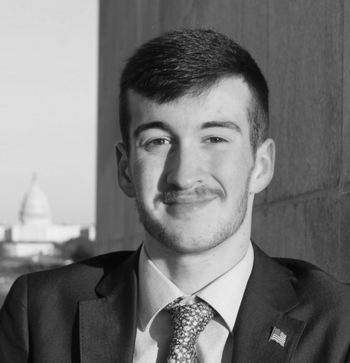Libraries partner with 'Queer Archives' to create LGBTQI+ collection
The purpose of the University of Arizona's partnership is to 'capture the histories and stories of LGBTQI+ communities.'
'Generally, these types of things are more designed to virtue signal than actually solve problems,' a UA student told Campus Reform.
The University of Arizona (UA) recently partnered with Arizona Queer Archives (AQA) to add a special collection of LGBTQ-related material to its libraries.
According to the school, the purpose of the partnership is to “capture the histories and stories of LGBTQI+ communities.”
“Special Collections added LGBTQI as an area of emphasis in 2022 with nearly thirty collections including those transferred from AQA,” the UA libraries website explains.
The official AQA archives feature drawings of oral sex, a coloring book for children “about not conforming to gender roles,” a “c**t” coloring book, and comics strips about polyamory.
It’s unclear which material from AQA will be included in the university’s libraries.
[RELATED: This is how LGBTQ inclusivity rankings work]
UA student Kunal Lobo called out the new archive section for failing to be inclusive, despite the stated goal of the archive.
“[G]enerally these types of things are more designed to virtue signal than actually solve problems,” Lobo told Campus Reform.
“For example, if you cared about LGBT (the other letters are mostly made up) inclusion, you wouldn’t put them in a separate section. You would put them in whatever section is relevant.”
Agnes Dinunzio, graduate student in the UA School of Information, by contrast, supports the project.
Dinunzio told Campus Reform, “Despite supposed values of neutrality and objectivity that belie the historical profession, in reality, some forms of information, identities, and organizations are privileged over others.”
[RELATED: Rising number of LGBTQ youth explained by a ‘dash of trendiness’]
Lobo added, “The fact that there is a separate section specifically for ‘queer’ people is not inclusive at all, it’s segregation.
Campus Reform recently reported on a similar project at the University of North Carolina, Chapel Hill, called ‘Queerolina.’
The UNC exhibit featured oral histories of anonymous sex and bathroom “glory holes” on and around the university.
Campus Reform reached out to the University of Arizona, the school’s library, and Arizona Queer Archives for comment, but did not receive a response. Jamie Ann Lee is currently away on sabbatical and is unavailable for comment.
Follow @thelogandubil on Twitter

